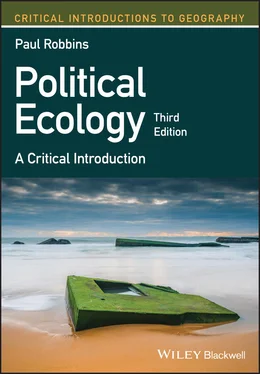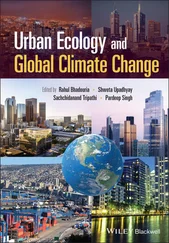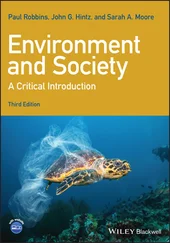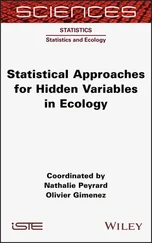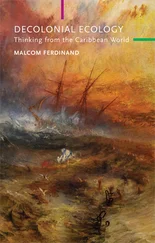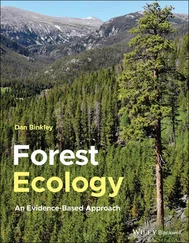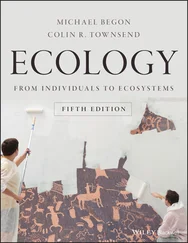Other researchers used ecological concepts like “ecological niche” and “adaptation” to explore within‐ and across‐group relationships (Barth 1956; Hardesty 1975). In the adaptation research of John Bennett, for example, the practices of a range of ethnic groups on the northern plains of Alberta, including Hutterite farmers, Anglo ranchers, and Native Americans, were explained in terms of the different ways in which they made a living from the diverse resources of the prairie (Bennett 1969).
During the 1960s and 70s, cultural ecologists became increasingly interested in developing common metrics with which such meaningful cross‐cultural measurements and comparisons might be made. How can the patterns of resource use in the forests of New Guinea, for example, be meaningfully compared to practices in rural England or the Soviet Union?
The answer, researchers concluded, lay in the universal measures used in the study of terrestrial plant and animal ecologies: energy, nutrients, and biomass. The first of these, energy as measured in joules or kilojoules, was deemed most attractive; it flowed through all systems and could be used as a measure not only of productivity but also of efficiency (Rappaport 1975). This concern for efficiency would mark many scientific fields; by assuming that systems tend towards homeostatic balance, or that they shift between dynamic equilibria, the pattern of human action can be seen in a broader, systemic, and predictive order.
Following these flows of energy and matter, research into energetics could explore some profound and interesting questions. Has agricultural intensification through the green revolution in places like India and Egypt significantly altered the efficiency of production? Which is more efficient, Soviet collectivism or modern English smallholding? The results of this form of energetics research often cast traditional and “primitive” practices in a startlingly positive light. Bayliss‐Smith's exhaustive and meticulous quantification of energy flows in agricultural systems around the world concluded that modern farming was remarkably inefficient, revealing the hidden ecological costs of fossil‐fuel dependence (Bayliss‐Smith 1982).
The adaptive practices of swidden (shifting cultivation or slash and burn) farmers, in particular, though long maligned by colonial officers and later development officials, were subject to careful scrutiny by cultural ecologists, who usually reached the conclusion that such farming systems were streamlined, effective, efficient, and environmentally benign (Conklin 1954; Geertz 1963; Dove 1983). Far from primitive and isolated, moreover, swidden was demonstrated to be well integrated into complex market systems (Pelzer 1978), with recent work underlining its importance as a supplement for the poorest and most impoverished households (Hecht et al. 1988). These findings, presented in a world where modern, high‐input, “green revolutionary” systems were being proposed as superior to those of traditional communities, sounded an important note of caution.
Finally, the cultural ecological approach is most notable for its serious attention to the logic of local people taken on its own terms, particularly their ecological knowledge and the relationships between that knowledge and environmental practice and the production of landscapes. Beyond the systems and adaptation approaches (most of which have lost prominence in the field over the years), research into people's logics and landscapes continues to thrive. Cultural ecological work with smallholders and rural cultivators is most notable in this regard, in that it demonstrates that though local production is immensely complex and highly variable, it operates in a sensible, rational, and relatively comprehensible manner. Whether examining the patchwork landscapes of field, pasture, and garden produced by Swiss peasants or untangling the complex property rights in Nigeria, cultural ecology consistently demonstrates that people close to the land act with sophisticated ecological understanding to produce the world around them (Netting 1981, 1986, 1993) ( Box 2.3).
Box 2.3Robert McC. Netting's Smallholders , Householders : Big Things in Small Places
Robert McC. Netting's Smallholders, Householders: Farm Families and the Ecology of Intensive, Sustainable Agriculture is a wonderful contradiction, typical of one of cultural ecology's most enigmatic observers. Amassing a huge body of evidence and summarizing a lifetime of work, Netting’s opus is concentrated on making only a single (but nevertheless important) point: intensive, small, peasant landholdings are inevitable, persistent, and sustainable.
The book is a blizzard of impressive detail from Nigeria and Japan to the Swiss Alps (long Netting's stomping ground). These particulars of farm strategy are harnessed to answer some big questions: Can the world's peasantry compete on regional and global markets? How much land is required for a farm family to survive? What systems of tenure allow small producers to thrive?
Like the bulk of Netting's work, the book debunks the high priests of intensification who tout that large farms with more machinery, operated by full‐time agribusinesses, produce more and cheaper food. Where Netting discusses the question of a farm's size versus its productivity, for example, a hotly debated question with implications for the decollectivization of post‐socialist farms and the agglomeration of corporate farmlands, he notes that “as is so often the case, cultural values are said to be responsible for economic inefficiency,” keeping “traditional” and “spiritual” people close to the land despite the hopelessness of production arrangements. Nothing could be further from the truth, he demonstrates. The economies of scale enjoyed by some plantation industries and the marginal conditions of some dry areas notwithstanding, small farms show extremely high yields with relatively few capital inputs.
Netting's politics are also fairly clear. He finds leftist accounts of emergent inequality and the disappearance of “the little guy” just as unsupportable as the celebration of consolidation by big‐farm optimists. Intensive small farms, Netting insists, thrive in feudalism, capitalism, and late capitalism. And while “within‐group” stratification of smallholders is a timeless reality, Netting insists that social mobility and opportunity in such groups are persistent – these high‐population, high‐intensity landscapes show remarkable social equality. These claims are contextual and debatable, of course, and do distract from troubling problems that smallholders will continue to face: unequal terms of trade, protectionism, and politically networked agribusiness. Even so, a material reading of the daily lives of smallholders shows a complex picture, one that defies grand theories about “the poor.”
In this way, Smallholders, Householders does what many postcolonial critics have long urged: it abandons the creation of ethnographic accounts of the “other.” Explicitly eschewing ethnology, Netting lays out his project from the start: “what follows is not an attempt to interpret ‘culture,’ a project of eliciting and perhaps creating meaning so grand that only the artist or the literary critic would confidently attempt it. Rather it examines a limited set of social and economic factors that are regularly associated with a definable type of productive activity” (p. 2).
Netting died in 1995. I regret that I never met or spoke with him. But this self‐effacing passage seems to admirably capture his eminently practical voice.
Cultural ecology, in this way, opens the door to a range of productive questions, allowing a continuing exploration of the sophisticated adaptations of people who had historically been characterized as backward. Related work continues to show the immense adaptive capacity of people, from the indigenous people of pre‐Columbian North and South America to the producers of agro‐food systems in the present day (Turner and Brush 1987; Turner 1990; Butzer 1992; Barham and Coomes 1996; Berkes 1999; Doolittle 2000; Denevan 2001). By uniting highly specialized skills in agronomy, pedology, and hydrology with social and cultural exploration, cultural ecology has, moreover, created a model for integrative multidisciplinary research in anthropology and geography (Butzer 1989; Turner 1989).
Читать дальше
